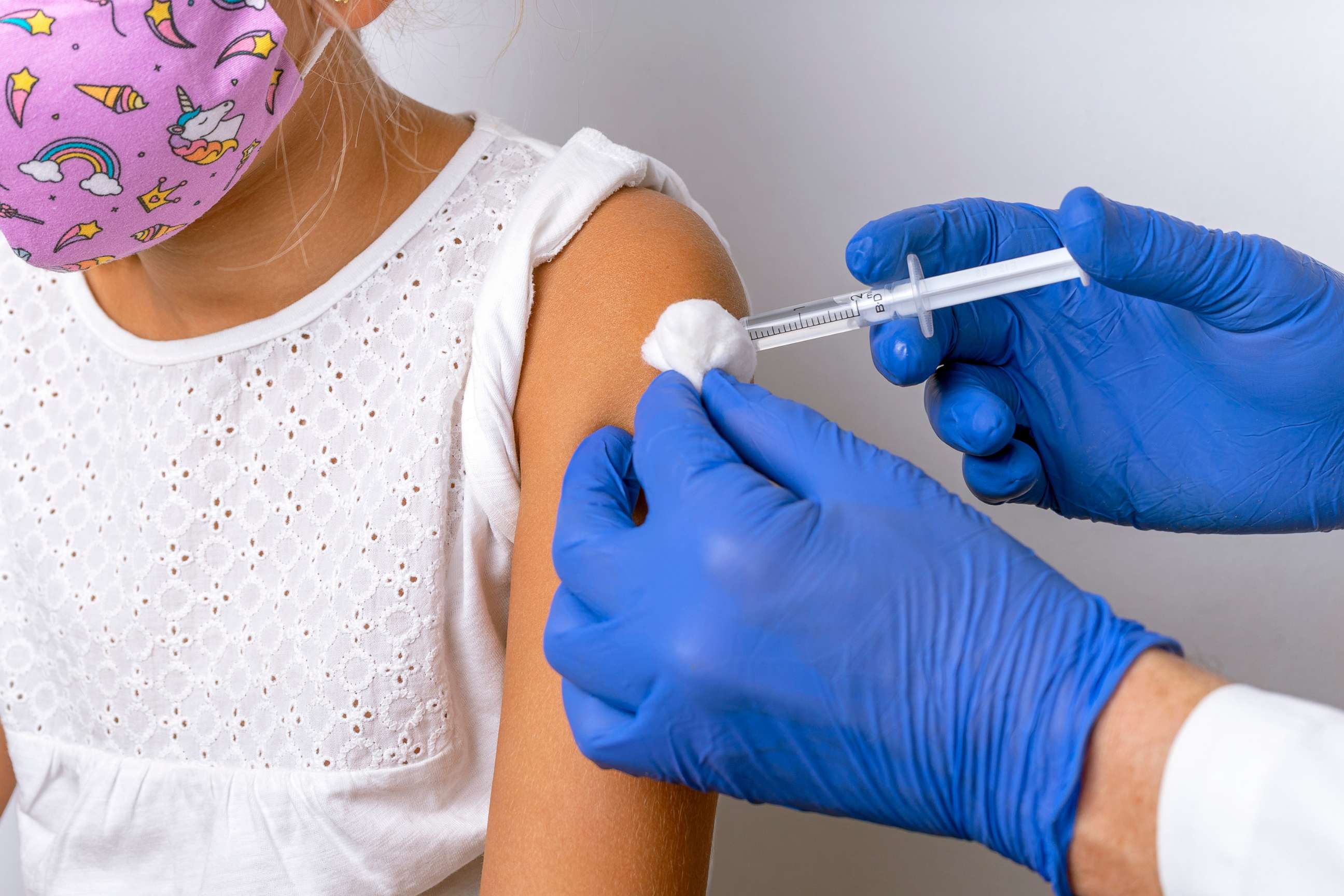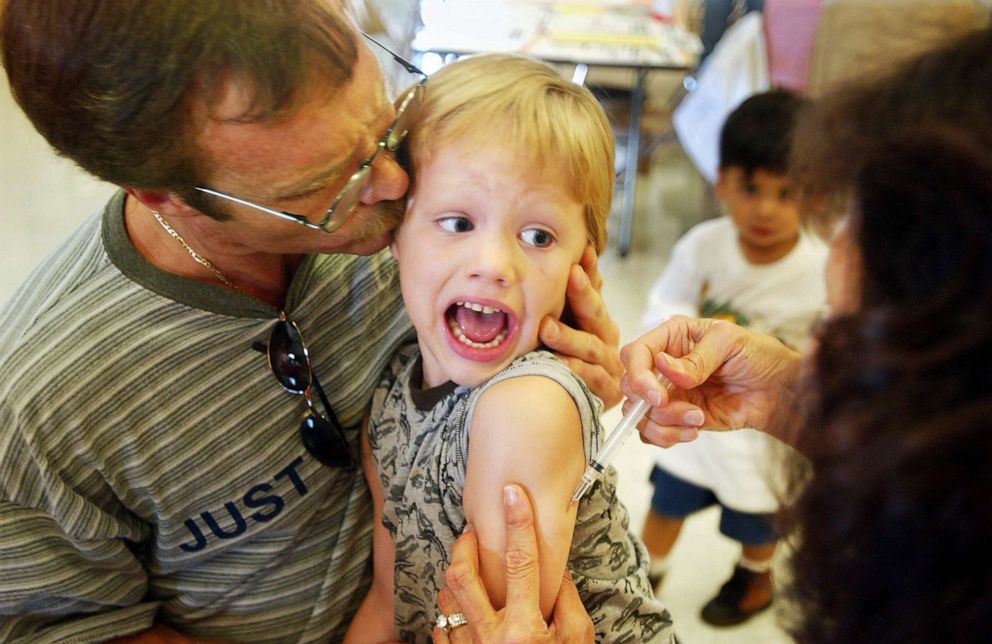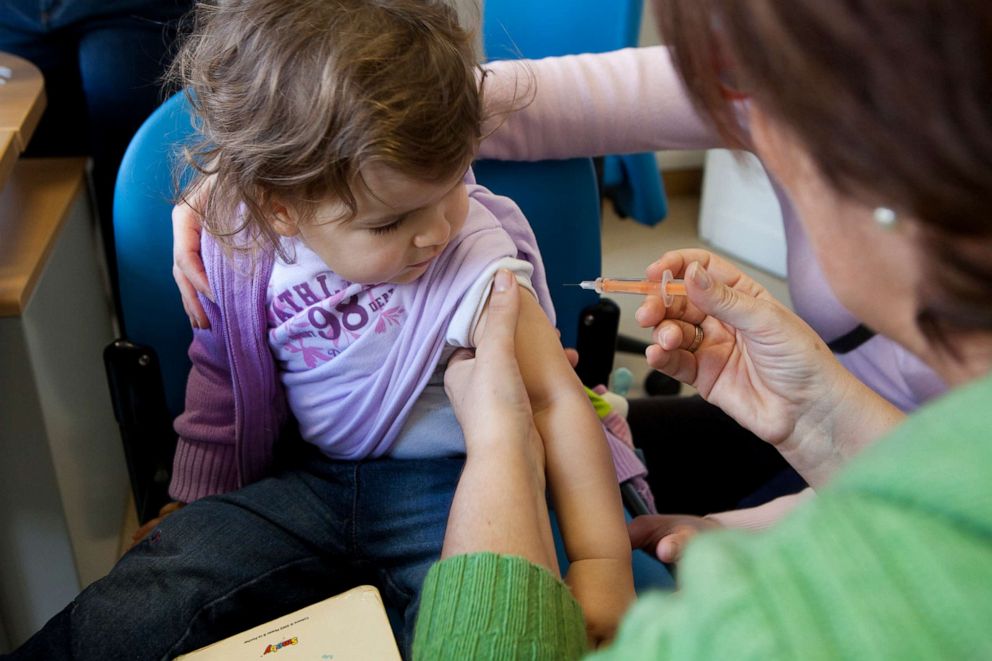As young children wait for COVID-19 vaccines, doctors worry about long-term effects of missing others
"The numbers in 2021 are in some cases even lower than 2020."
As many parents wait for COVID-19 vaccines to be authorized for children younger than 12, doctors increasingly are alarmed at the rising number of kids who are missing routine vaccinations -- a trend that's had a domino effect from last year, when so many families were confined to their homes.
Now, a new analysis finds that to catch up, community health centers may need to increase the number of childhood vaccinations by 265% -- and maintain that pace for at least six months.
"The decline in routine pediatric immunizations is very concerning because measles, pertussis and chickenpox still remain threats to child health," said Dr. Josh Sharfstein, a pediatrician and vice dean for public health practice and community engagement at the Johns Hopkins Bloomberg School of Public Health.

With in-person schooling restarting this fall, a growing chorus of doctors is now urging parents to make sure their children receive their routine pediatric vaccinations, which run along a specific schedule. For example, babies are supposed to get their measles, mumps, rubella vaccination near their first birthday. By age 11, it's time to be vaccinated against human papilloma virus.
But with so many children missing these routine immunizations, doctors are now warning of a potentially sharp uptick in vaccine-preventable diseases, which may coincide with a potentially difficult flu season if children also are receiving fewer flu shots.
"We now face the double challenge of keeping children safe from the delta variant and making sure they're not falling ill from other preventable diseases as they return to in-person schooling," Sharfstein said. "The next year will be an immense challenge for parents, pediatricians, teachers and school administrators to protect children."
HealthEfficient, a not-for-profit organization in New York that supports community health centers nationwide, has been tracking childhood immunization rates since the beginning of the pandemic.
"Our data shows a substantial and persistent drop in the number of childhood immunizations occurring over the last two years," Alan Mitchell, the group's executive director, told ABC News. "The numbers in 2021 are in some cases even lower than 2020, and 2020 already represented a large drop-off from 2019."

Analysis by the Centers for Disease Control and Prevention of high-performing immunization information systems from 10 jurisdictions in the U.S. showed that administered doses of routine childhood and adolescent vaccines were substantially lower from March to May 2020 compared with that same time period in 2018 and 2019.
A study conducted by a team at the Institute for Health Metrics and Evaluation at the University of Washington found a similar drop-off in vaccination rates throughout the world, with the most significant decrease seen in April 2020. Data from the World Health Organization and UNICEF shows that at least 23 million children missed routine vaccinations in 2020 because of the disruption in health services.
"Any time there is a decrease in vaccination rates, this lowers herd immunity and increases the potential for an outbreak, as we saw for measles in Minnesota in 2017 and in New York in 2018-2019," said Dr. Keila Lopez, an associate professor of pediatrics at Baylor College of Medicine/ Texas Children’s Hospital.

"These declining immunization rates risk reversing years of gains via public health efforts to improve pediatric immunization trends," Mitchell said. "In our view, a sustained, coordinated public health initiative is needed to drive these rates back up to pre-pandemic levels."
Experts recommend restoring vaccination services and campaigns, helping health care workers and community leaders educate the public about the importance of vaccinations, identifying and rectifying vaccination gaps in individual communities, making sure COVID-19 vaccinations don't affect the routine childhood vaccination drive, and implementing plans to prevent and respond to outbreaks of vaccine-preventable diseases.
The impact of the pandemic can be felt as a ripple through other serious conditions that make catching up even more critical.
Health care providers and schools should assess the vaccination status of all pediatric patients, including adolescents, and contact those who are behind schedule to ensure all children are fully vaccinated, experts told ABC News. Furthermore, more public health campaigns to combat misinformation and reinforce the overwhelming value of vaccines also could help, and community health centers have a critical role to play.
"Based on the current delta surge impacting higher numbers of children, school reopening's with varied public health practices and more frequent quarantines," Lopez said, "I fear that routine and flu vaccine acquisition will fall even lower this season."
Tushar Garg, M.D., an incoming postdoctoral research fellow at Johns Hopkins Hospital, is a contributor to the ABC News Medical Unit. Jay Bhatt, D.O., an internist and adjunct faculty at the UIC School of Public Health, is an ABC News contributor.







